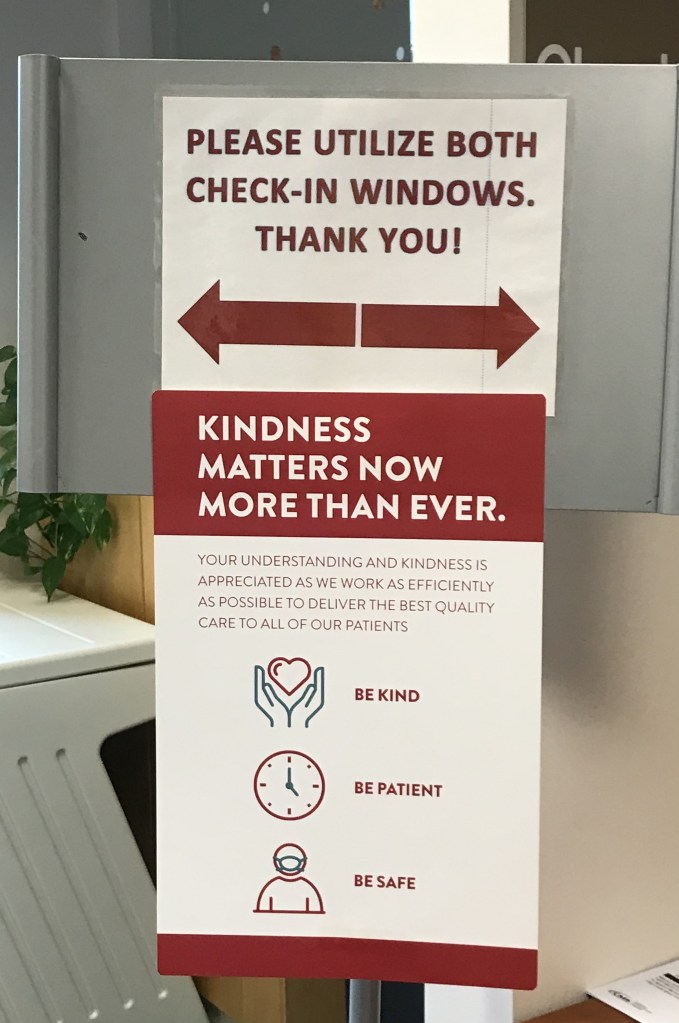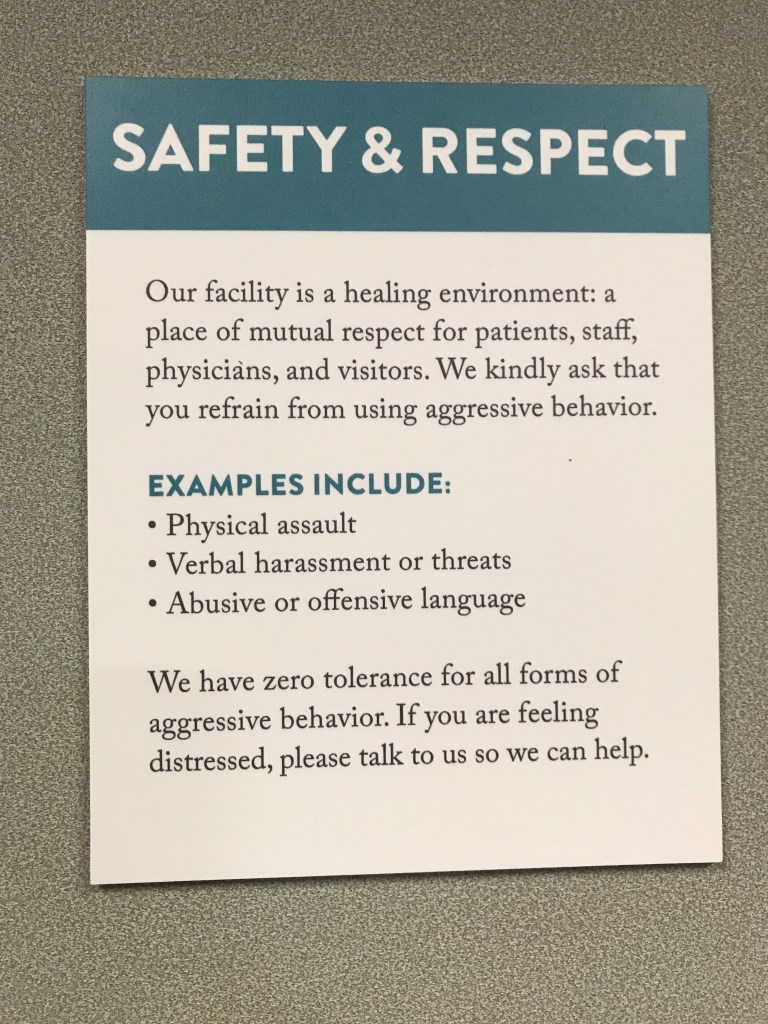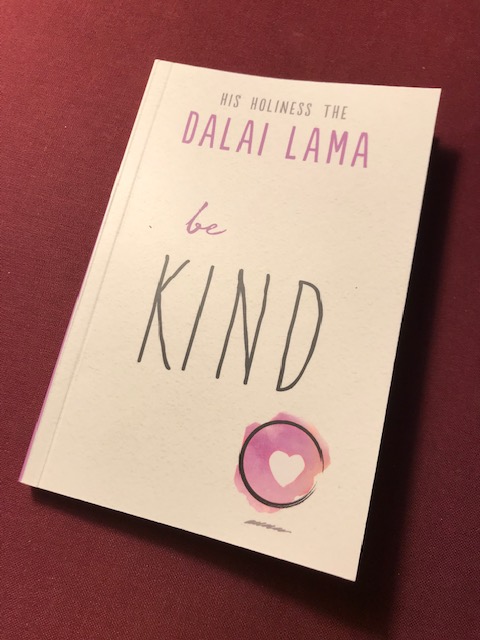I must admit up front that I am nervous about holding my mobile phone against my ear for long periods. Research has not conclusively shown that radio frequencies emitted by cell phones cause cancer, but it has not disproven it either. So, when possible, I place my phone in speaker mode, especially when I expect to get an automated response to my call, like when I call the pharmacy to check on the status of a prescription.
I did this one morning about a month ago. I touched the various numbers that led me along the path to discovering the status of my order but met with a roadblock on the way, so I went back to the main menu and pressed the number to speak with a pharmacist. A woman came on, and I began to explain the situation to her. Suddenly she interrupted me to bark, “Stop yelling at me!”
I was flabbergasted since I thought I was talking in a normal voice, so I stammered, “I’m not yelling.”
“Yes, you are!”
“Well,” I hesitated, “I have my phone on speaker, and perhaps the volume is too high; let me turn it down.”
“That’s not it, you’re yelling. Just answer my question!”
I meekly asked her to repeat the question, answered it, and was told the prescription awaited pick-up. “Okay,” I whispered and hung up.
Wow, I thought, she’s having a bad day.
About a week later, I had an unrelated conversation with a healthcare professional in my community. She asked me if I had noticed the signs posted at the local hospital and in virtually all doctors’ offices asking patients to be kind to staff and one another. I had not paid much attention but had a vague recollection that I had seen such signs and that they were also displayed in yards throughout my town. “BE NICE,” “BE KIND,” they reminded. She noted that these signs were relatively new.
Before the pandemic and the concurrent escalating political divide, such reminders were not as necessary because unkindness, rudeness, anger, and frustration were not as prevalent in public as they are now. People, she reflected, are just not as patient and thoughtful of one another as they used to be, and healthcare professionals, while not the only ones encountering such bad behavior, are some of the most frequently abused. The same essential personnel who risked their lives to come to work during the height of COVID, while many of us avoided public places, are being disrespected and insulted. No wonder they are quitting their jobs in droves, she posited.
Her words and the encounter with the pharmacist started me thinking about two things: how little we know about the people we encounter daily and how much we need to give one another the benefit of the doubt in every situation.
To go back to the pharmacist. She had no idea why my voice was coming through the line so loudly; she didn’t know that my phone was on speaker or that my spouse was hard of hearing, and that I habitually speak in a louder-than-normal voice. I didn’t know whether the call she received just before mine had been an unpleasant encounter with a demanding customer or if she was alone in the pharmacy trying to catch up on a several-day backlog of script orders. We experienced each other as impatient and rude, but did we take a moment to consider each other’s circumstances, limitations, pressures, and challenges? Did we assume the other was a good person, needing patience and kindness, or did we conclude that she was obnoxious, demanding, and unworthy of respect? Did we have the capacity to give each other the benefit of the doubt and try to calm rather than stoke the flames of irritability?
A couple of weeks after my conversation with the healthcare professional in my community, I went to a specialist’s office at the local hospital. I saw kindness signs posted at every turn of the corridor, in every elevator, and at three different sites within the specialist’s reception area—a desperate plea to patients to calm themselves and treat others respectfully.



How do we increase our bandwidth for kindness and respect in all the encounters of our daily lives? We can start by getting in touch with our own innate goodness, being kind to ourselves, and understanding where our instinctual and habitual reactions come from. Then, we can assume that the other problematic person is also innately good, dealing with some of the same human challenges we are, and deserves to be cut some slack. And we can imagine walking in their shoes even briefly or shifting to see the situation from their perspective.
Monica Guzman’s book, I Never Thought of It That Way, uses the acronym INTOIT (to capture the title’s notion) and encourages us to be open to INTOIT moments when our perspective is changed, broadened, or softened by seeing things newly through the eyes of another. She encourages us to ask, with genuine curiosity, the fundamental question, “What am I missing?” To acknowledge that the picture in my head is not the complete picture of any person or situation; it’s just my perspective.
We cannot know all the conditions and circumstances that have made someone who they are at the moment we encounter them or why they say and do what they say and do that may aggravate or thrill us. But since we long for understanding and respect, we can infer that they, too, yearn for it, along with grace, kindness, courtesy, and indulgence. As the Dalai Lama says, “Genuine compassion is based on a recognition that others, like oneself, want happiness.”
Kindness is as kindness does. It is not a warm, fuzzy feeling but a way of being and acting. It is not needed now, more than ever, but now as much as ever. Be kind.



What a meaningful message. We all have a lot to learn don’t we!
LikeLike
Moriah, Lovely insights, reminders and steps available to us all. I tried to comment on your site but Maine health does not allow so here is my note and thanks. Deb.
LikeLike
I commend you for your awareness. You have clearly internalized All Due Respect. I’m afraid to say my auto-response would likely have been defensiveness (or hurt feelings). It’s lifelong work, isn’t it?!
And–so happy to see Monica Guzman show up here!
LikeLike